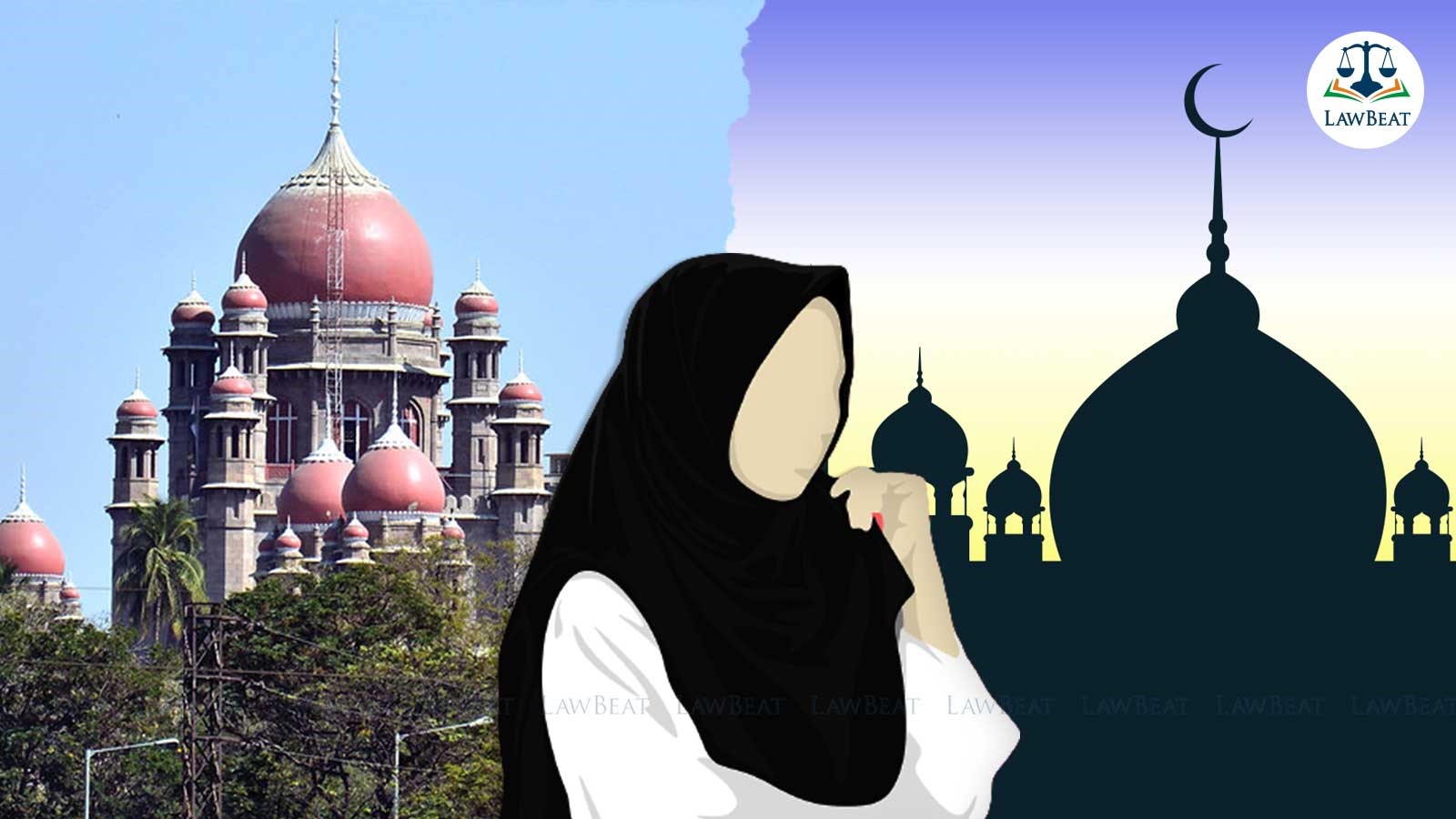Telangana HC Affirms Akhbari Shia Women's Right to Pray at Ibadat Khana Mosque

The court noted that “nowhere in the Holy Book, the Almighty prohibited women from entering into prayer halls to offer their prayers”
The Telangana High Court has affirmed the right of women from the Akhbari sect of Shia Muslims for conducting Majlis, Jashans, and other religious prayers at the Ibadat Khana mosque in Darulshifa, Hyderabad.
The ruling, delivered by Justice Nagesh Bheemapaka, came in response to a petition filed by the Anjumane Alavi Shia Imamia Ithna Ashari Akhbari society. The society had sought legal intervention after their requests to the Telangana State Waqf Board, which oversees the mosque, were ignored. The petitioners contended that while women from the Usooli sect were allowed access, Akhbari women were unjustly excluded, which they argued amounted to discrimination and a violation of their fundamental rights under Articles 14 and 25(1) of the Constitution.
The Waqf Board had argued that religious sentiments and traditions should be upheld, even in the absence of a Quranic prohibition. It was further emphasised that religious sentiments and conventions should guide such decisions. It was asserted that the matter was also sub judice before a Tribunal, rendering the Writ Petition not maintainable. Additionally, the Waqf Board maintained that the Ibadat Khana was meant for both sects and that they had made efforts to allow women access as per earlier directives.
The High Court noted that the Quran does not prohibit women from prayer halls, citing Chapter 2, Al-Baqarah 222-223, which specifies a natural rest period but not a general exclusion.
The Court's decision also addressed previous inconsistencies regarding the Shia Muslim community. It noted that women from the Usooli sect had been allowed access to the Ibadat Khana since 2007, making it discriminatory to deny the Akhbari sect similar access. "It is clear from past proceedings that denying Akhbari women access manifests discrimination," the court stated.
The court took into account the Supreme Court's 2018 Sabarimala judgment, which affirms the right of all individuals to religious freedom under Article 25(1) of the Constitution. The court emphasised that this precedent should apply to the present case, reinforcing that gender-based exclusions from religious practices are unconstitutional. In furtherance, it directed that Akhbari women must be allowed to perform Majlis, Jashans, and other religious prayers at the mosque.
The court concluded that the Supreme Court in the judgment Indian Young Lawyers Associatoin and others (Sabarimala Temple, In Re) v. State of Kerala, “in clear and categorical terms, held that the Constitution by way of Article 25(1) confers on every individual in society without distinction of any kind whatsoever, freedom of conscience, freedom to profess, practice and propagate religion. This Court therefore, was of the opinion that action of the respondents amounts to violation of fundamental right guaranteed to petitioner under Articles 14 and 25(1) of the Constitution and thus, directed the respondents to forthwith permit the women members of Akhbari Sect of Shia Muslim for conducting Majlis, Jashans and other religious prayers in the Ibadat Khana situated in the subject premises." Thereby upholding the petitions and reinforcing the principles of equality and religious freedom.
On December 11, 2023, the Court issued an interim order directing that women of the Akhbari sect be allowed to pray at the mosque. Despite a subsequent attempt by the mosque's caretaker committee to overturn this order, the High Court has now confirmed its stance, affirming the right of all women within the Shia community to access the Ibadat Khana.
Cause Title: Anjumane Shia Imamia Ithna Ashari Akhbari Registered Society v State [WP No. 33130 OF 2023]
